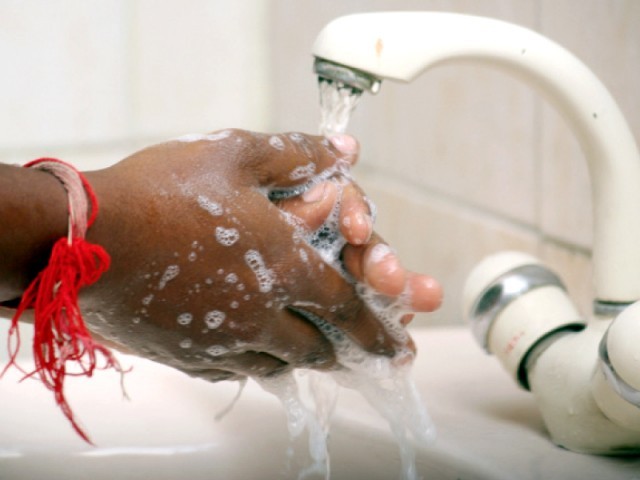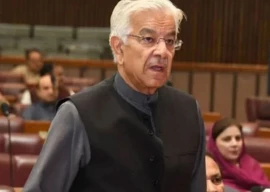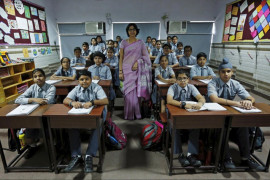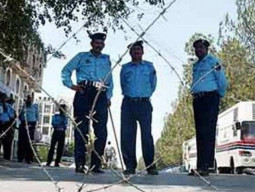
After the one-hour lecture at the Rehri Goth primary school located near Ibrahim Hyderi, one of the teachers, Saleh Mallah, expressed his concern and said, "These students are ready to adopt this practice of handwashing, but where will they get water from? There is no water in our village."
The students and teachers said that even in this modern world women and children of this area travel miles to fetch potable water for their family members. The underground water is totally contaminated and drinking water is still a distant dream.
Read: Potable water: Saaf Pani Company to seek bids with relaxed criteria
Ayoub Shan, a community activist, said that this practice of Global Handwashing Day is not only confined to a one day activity and they educate children and elders in the society by increasing awareness about the importance of washing one's hands. "We agree that a single day's event will not make a difference, but this day is being observed to give a message internationally that we are with this cause," said Shan, who mostly works in marginalised communities living on Karachi's coastal belt. "After every 15 days, our community representatives adopt creative ways to encourage people, especially children, to wash their hands with soap," he explained.
Global Handwashing Day, which is being observed today, follows the adoption of the United Nation's Global Goals on Sustainable Development by 2030. Pakistan is one of the 191 countries that have agreed to focus their struggle on access to water, sanitation and hygiene
According to the Pakistan Demographic and Health Survey conducted in 2013, almost 53,000 children under five years of age die because of diarrhoea — a disease that is directly linked with poor quality of water, sanitation and hygiene. The survey reveals that, out of every 1,000 live births, almost 104 children die before reaching their fifth birthday. "Lives can be saved by improved water, sanitation and hygiene facilities and the provision of access to health services," said Farooq Hayat, a community development expert who works in Tharparkar, one of the most neglected districts of Pakistan in terms of development. "The lack of hygiene is a contributing factor to the poverty in rural areas," he said, referring to various studies and researches that have proven that handwashing with soap can avert the occurrence of diarrhoea and pneumonia by up to 16 per cent.
Various non-governmental organiations have started providing soap to government schools and organising events in connection with Global Handwashing Day.
"In Pakistan people spend huge amounts of money on treatment of diseases that could be easily prevented through proper handwashing with soap," said Hayat, who is affiliated with the Sukkur Foundation. He added that they, in collaboration with women's organisations and health, education and marketing partners are delivering effective campaigns to eliminate bad hygiene practices.
"We have been campaigning for personal hygiene since 2006 and hand washing is major part of personal hygiene," he said. "You would be surprised to know that our recent survey reveals that 90 per cent people of 10 villages of Islamkot adopted handwashing practices, which reduced diarrhoea by up to 50 per cent, eye infections such as trachoma and conjunctivitis by 45 per cent, and respiratory infections by about 35 per cent."
Published in The Express Tribune, October 15th, 2015.


























1714024018-0/ModiLara-(1)1714024018-0-270x192.webp)










COMMENTS
Comments are moderated and generally will be posted if they are on-topic and not abusive.
For more information, please see our Comments FAQ